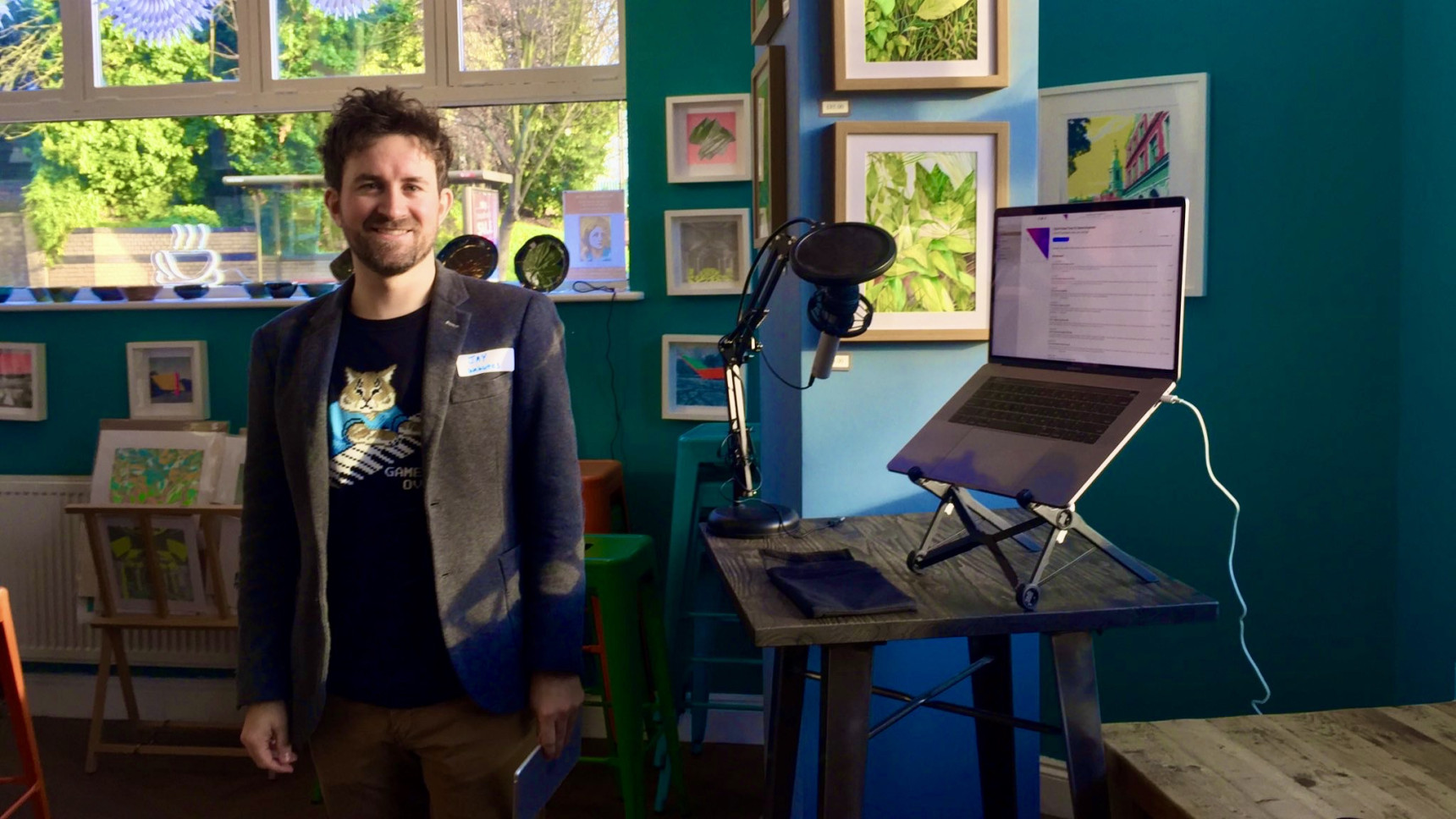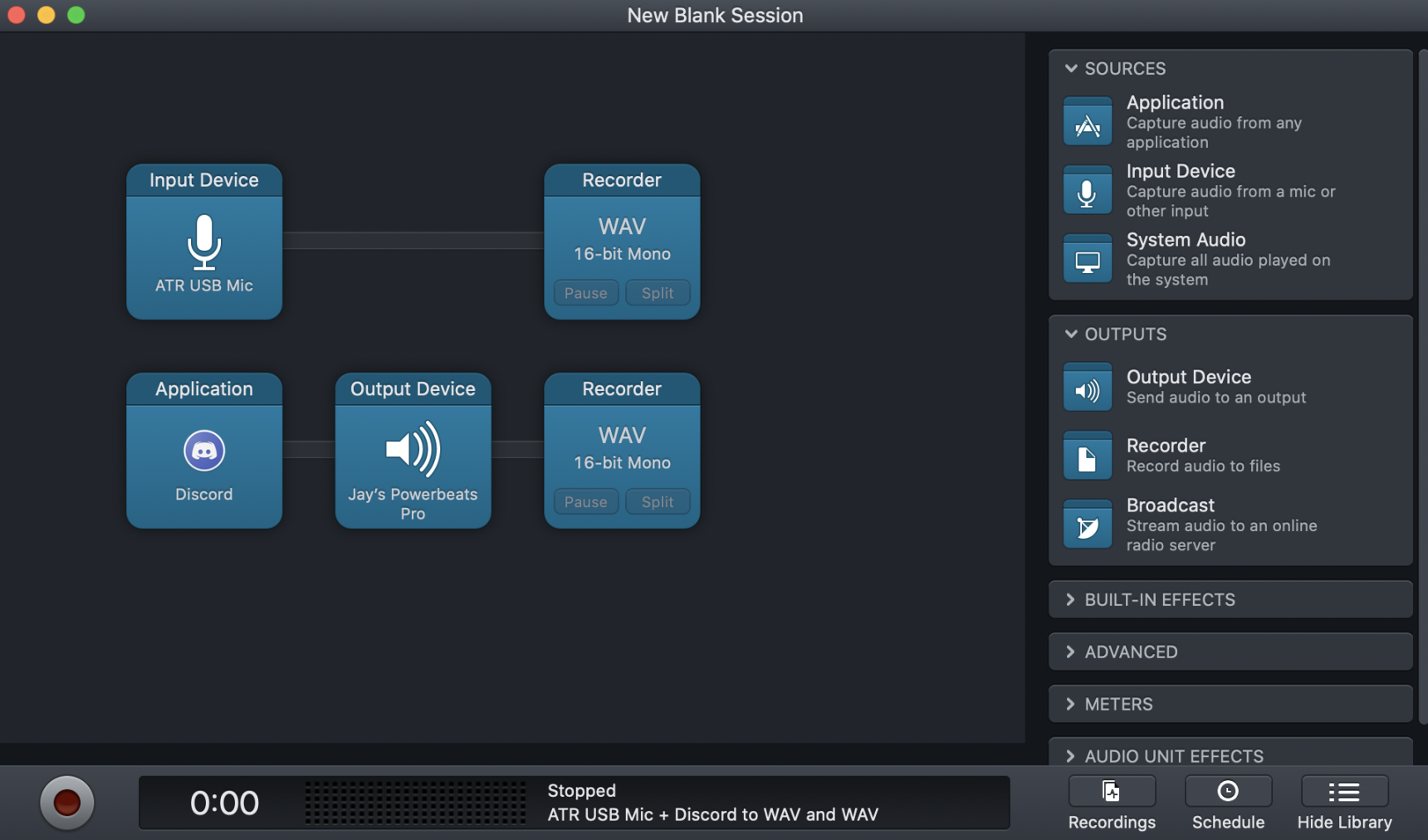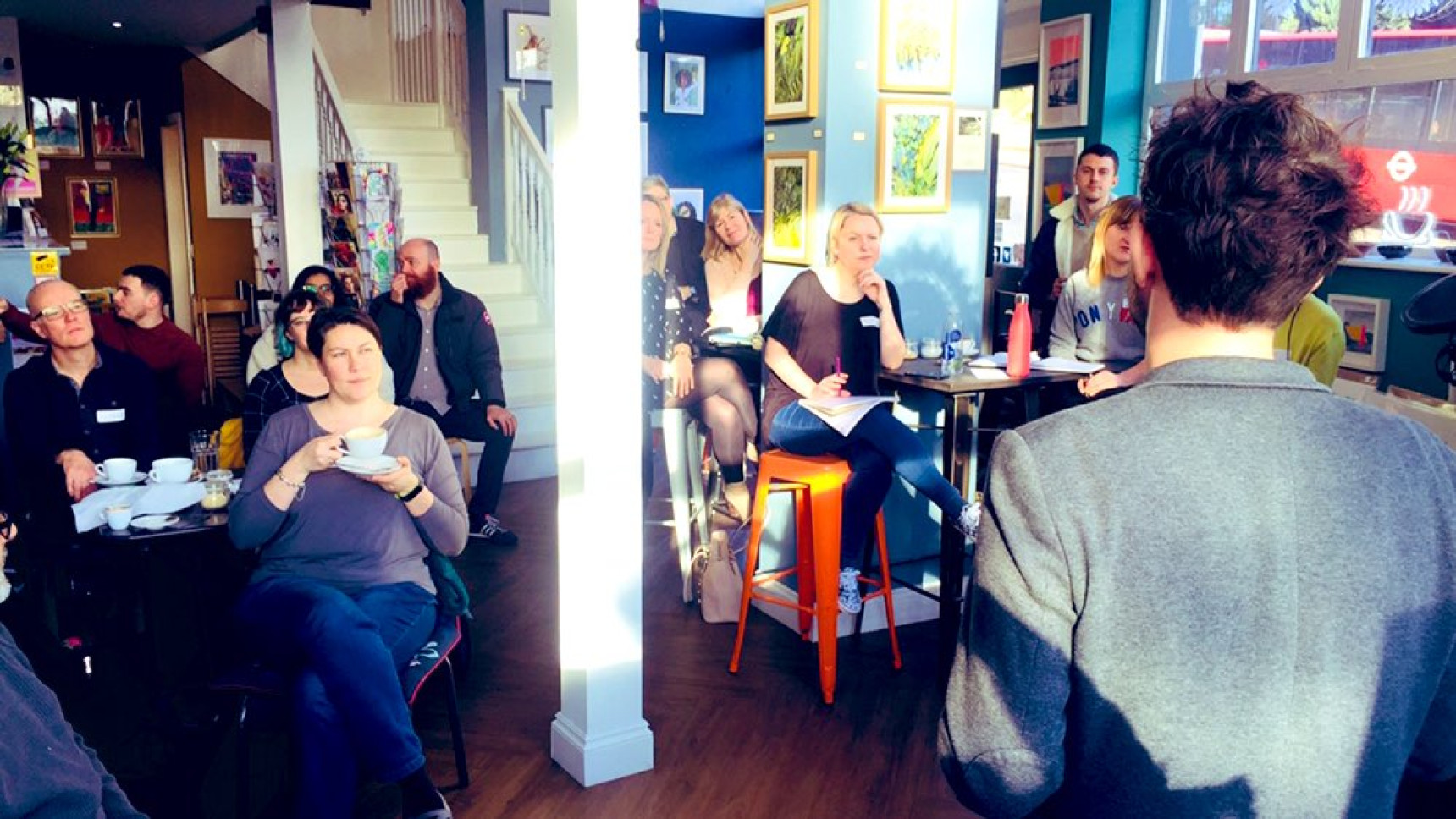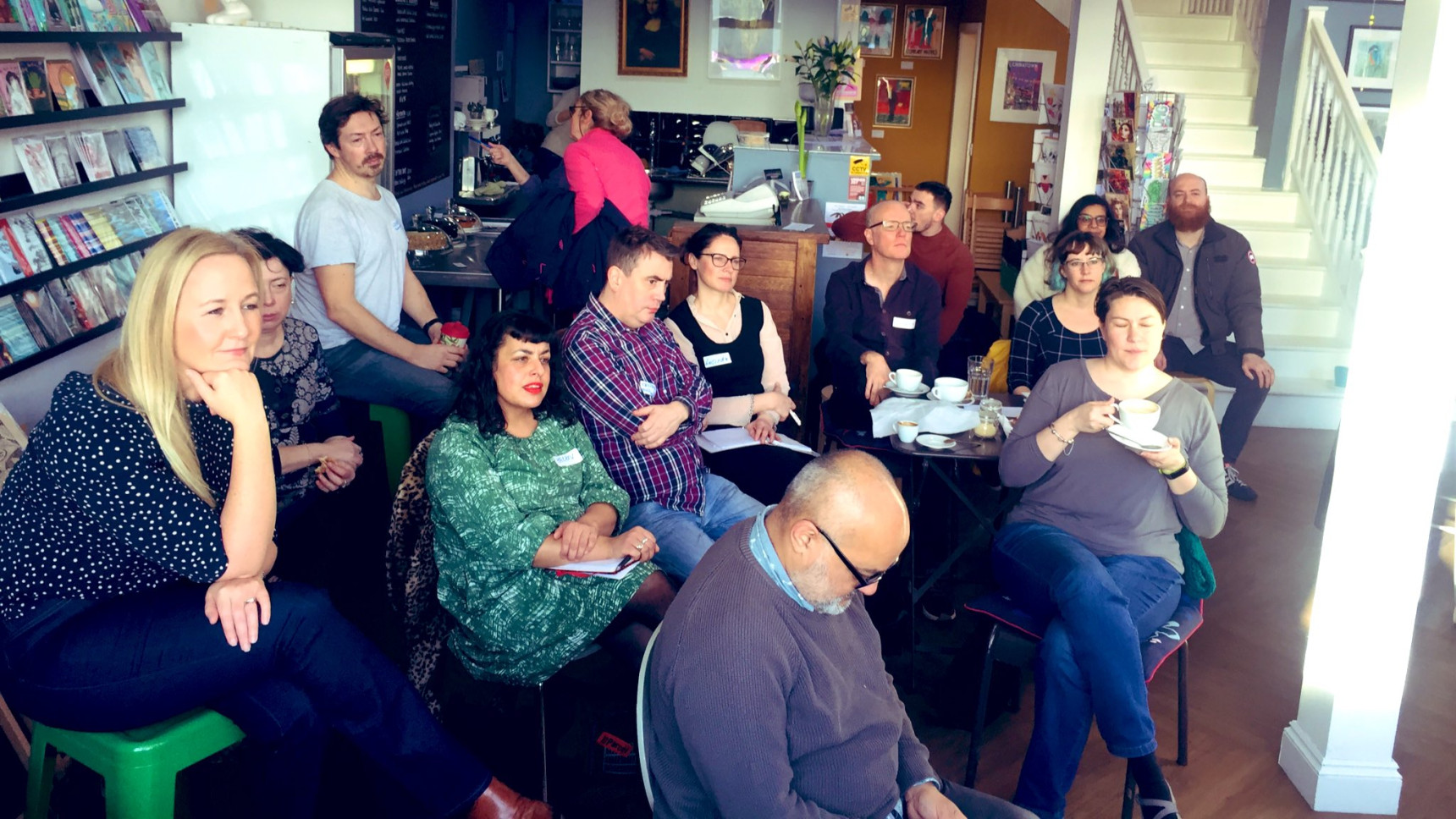Since January 2017 I've co-hosted a podcast called I Don’t Have Time To Game Anymore. We like to think of it as a comedy podcast that happens to be about video games, in which we lament our lack of time to play, now that we're no longer in our 20s.
I have enough podcasting experience that I thought it was a good idea to share some tips that will help you if you're starting out. I've divided this post up chronologically, from deciding that you have an idea for a podcast, editing, publishing, and finally promoting.
Commitment
It's important not to underestimate the amount of ongoing time it takes to keep up a podcast. For us, each 25-minute episode we put out takes 5 hours to produce between us—1 hour researching and planning; 1-hour recording; then 3 hours of editing it down. As a rule of thumb, it takes 3 x the recording time to edit. We’re pretty fast now, but this is still a considerable amount of time to spend doing something that might not reward you financially.
So my first bit of advice is—think about whether you have a chunk of time to dedicate to a podcast and understand your motivation for doing this. You need intrinsic motivation because—and I hate to break it to you—the chance of your podcast getting popular, let alone making money, is slim.
You're best combining making a podcast with something else you really enjoy. Doing a podcast was also an opportunity to catch up with my friend I grew up with, who now lives in New York and has two kids. The 6 hour time difference and our different responsibilities mean it can be difficult to make time for each other. Quaffing a beer while recording our conversation was a great way to maintain our friendship. It's something I look forward to every month and keeps us producing the podcast.
One podcast I listen to—the Rissington podcast—records their episodes in a local pub. Now I'm not suggesting you always mix alcohol with your podcast, but you can hear that they're clearly enjoying themselves and it's another way to look forward to producing a show.
So… if you want to make a podcast, try to make it an enjoyable experience that you look forward to.
Equipment
Your equipment makes a big difference to the sound, and it’s definitely worth spending a small amount of money on a mic. You can get good equipment on a budget, and there are lots of different guides on which microphones to get.
I used a guide by Marco Arment, a well-respected programmer and creator of the podcast app Overcast. Here is the guide— https://marco.org/podcasting-microphones. I really liked this guide because it also has sound samples for the mics reviewed.
Many guides recommend the Blue Yeti, but I recommend the ATR 2100x, which costs around £80 (or $100). While I bought the ATR 2100 (the older model) straight away, Dave initially had the Blue Yeti. The 2100 sounded so much better Dave sold his Yeti and bought one too.
Some other microphone tips
Try to get the same microphone as your co-host/s, so your podcast sound is uniform.
If you buy a budget microphone read reviews and understand the microphone's limitations—for example, the ATR 2100 sounds great up close. Still, it quickly sounds bad if you drift more than a couple of inches away, which would make it difficult to have a guest in the same room.
Although a microphone stand isn't essential, they're cheap (about £20), and they make recording a nicer experience. A good stand gives you some space to use a keyboard and gesticulate because the mic comes in from the side. They're also heavy, so they keep the mic from moving and causing noises. Mic stands also look cool and make you feel like a pro. Although I'm half-joking about that last point, quite honestly it might improve your confidence and delivery!
Pick a pop filter up for £5. These little windshields, which also look cool, stop "plosive" sounds from ruining your recording. The word "Plosive" describes the rush of wind going into a mic caused by words beginning with P.
Recording the podcast
The big question is—are you going to record in the same room? Or are you going to record in separate rooms over something like Skype?
If you’re in the same room, you can capture directly with whatever podcast software you’re using. If you're recording over a call, this needs some thought. The setup you end up with will make a big difference to the audio quality.
What you really want is to have two audio recordings—one audio track per person. This allows you to cut out background audio from whoever’s not speaking, and separate voices so you can rid of talking over each other.
While it's possible to capture audio over Skype via an app called Call Recorder (available on Mac + Windows), the following setup has produced much better audio for us:
Download an app called Discord. This is marketed at gamers, but their audio calls' quality is much higher than Skype, in my opinion. You may not notice it on the call, but it’s noticeable when you listen back while editing.
To capture the audio from the call, use an app called Audio Hijack, which enables you to capture audio from any part of your computer in high quality.
We use Audio Hijack like this:
Things I notice about other podcasts
Most podcast intro music too long. Yes, it's cool that you've found some intro music you like but be honest—how often to you press “skip intro” where Netflix gives you the option? For me, it's almost every time. Treat podcast intro music the same—it's great to have it but make it short, like between 10 to 15 seconds; any longer is vanity.
There's too much cross-talking. Sometimes there can a lot of cross-talking, where the presenters talk over/overlap each other. Some of this is fine of course and part of the natural conversation, but you should get rid of it where you can.
There's too much focus on the marketing or brand. It's nice to have these things, but people care about content and want to get to it fast.
Once you have a podcast listening to other voices and your own voice makes you more aware of your speech patterns' faults. Get rid of filler words like “you know”, “just”, “like”, “basically”, “literally”. Once you tune into a person’s filler words, it’s tough to tune out and actually listen to what they're saying. Someone once said to me "the word 'literally' is the middle class 'like'".
Editing the recording
You may wonder why you need to edit an episode in the first place. Well, firstly, people have short attention spans and want to listen to something concise.
Secondly, it's tough to record a smooth show, so you'll want to preen it. You'll also want to add some polish like intro music, outro music, and maybe some sound effects to divide up sections.
Luckily there is excellent free software you can use. Software choice is somewhat personal but whatever you end up choosing, make sure you choose something specifically designed for voice recordings. Voice editing software will have a better workflow and bells and whistles like background noise suppression. While you may be tempted with Apple's built-in GarageBand app—it is beautiful after all—its workflow is nowhere near as good as free third-party software like Audacity, lacking basic things like "ripple delete".
I recommend you start with Audacity. It's free and available on both Mac and Windows. There's no getting around the fact that it looks rubbish, especially sat next to GarageBand, but it will make podcast editing easy.
I'm currently using Logic Pro X, which is Apple’s pro sound editing software. It's about £200, so I wouldn't recommend it if you're starting out, but it's nice if you're investing long-term. Elsewhere, I know other people that have created great sounding podcasts with Audition, part of Adobe’s creative suite.
Goals
When editing you'll mostly want to get rid of umms and errs and any lip-smacking. It will take time and many episodes to get comfortable and minimize the pauses, ums, and ahs. Don't overthink it at first—editing is your friend.
Editing is also great for keeping the show a consistent length. Trim out sections that don't work well and look for quality over quantity—people don't have time for your waffle.
I realise this sounds a bit David-Brent motivational-speaker, but I find making a fake smile just before you start recording or speaking will positively alter your tone of voice.
In terms of sound, the most important bit is how you record—for example, if you have a poor quality call then you can't really fix that. If you want to get more technical about improving your voice in "post", search YouTube for ‘Aaron dowd podcast’. Aaron has a ton of free tips and even has a full-blown podcasting course. It's not cheap, but I have no doubt it's worth it if you're serious about podcasting.
Adding music to your podcast
It's certainly worth adding some music to your podcast to give yourself some identity. There are many sites where you can find either free or paid licensed music:
Using unlicensed music is risky. There is an urban myth that if you use sounds under the "10-second" mark, you'll be fine. I’ve read that this is nonsense. So stick to free or paid licensed sounds.
How to get your show on Apple Podcasts
Previously known as iTunes, Apple Podcasts is the original "podcast" directory and the first thing people think of. Podcasts technology is actually straightforward. You give Apple Podcasts a web address, Apple goes there and looks for a “feed” (essentially a bulleted list) of your episodes. Each episode has some info like:
One thing that surprised me was that Apple doesn't host your episode; it just knows the web address where the audio file is stored. When someone downloads one of your episodes, Apple just fetches it. It's all decentralised.
This means you need to store your episode audio files somewhere on the web so that Apple, Google, or Spotify, or Overcast or whatever other networks can fetch the audio file when an episode is downloaded.
There are many different podcast hosts, but I'd recommend Simplecast—a modern host that comes with handy extra features like sharing audio clips (Recast), and advanced analytics—if that’s your thing. Simplecast is £11 a month at the time of writing. Once you’ve got hosting sorted, getting your podcast into other networks is easy, you just point them to your feed.
Promoting
Once you've published, you'll want to get noticed. We promote all our episodes at least on Twitter and Facebook. In terms of promotion, Simplecast's "Recast" feature is amazing.
Recast enables you to make little video clips of parts of the show, which you can then post on social networks.
When choosing which clips to share bear in mind your different audiences—for example, I know my Twitter feed is mostly made up of technical people more likely to appreciate straight-up game news. In contrast, my family and friends (Facebook) will probably just enjoy the funny bits.
The reason I love Recast so much is that watching a video clip is really easy and a low commitment for someone on social media. They can quickly get an idea if your content is appealing in a single click and just a few seconds. On the other hand, getting someone to subscribe to your podcast is a much bigger commitment.
Publish regularly
I read somewhere that you should always stick to a schedule, so we now publish on the 1st of every month. The idea is that listeners will know when to expect an episode and check/tune in. Some podcast apps like Overcast will label your podcast frequency if they can see you are consistent, e.g. after a few months of our regular schedule, our podcast was labelled as "Monthly".
Editing takes time, and you might have other things on, so we try to record the weekend before our show is due to go out. This means I get a week to edit it down. Editing is the perfect activity for "no internet" places so try editing on your commute or something—it'll be done before you know it.
Guests
While our podcast, I Don't Have Time To Game Anymore, is a bad example, we've determined that the route to popularity and promotion is getting guests on your show. Guests will promote your show for you because they're on it, and you may acquire listeners from their network. A good example—I really like the Adam Buxton podcast. At some point, Adam mentioned that he was a guest on the Throwing Shade podcast, so I checked it out.
Getting Noticed
Appearing higher up in Google search engine results is probably going to be very hard. Google and other search engines don't understand audio; they primarily look for text.
The least you can do is put effort into the title and description of the episode. If you have the time, you can add a transcript—written text for everything said in the episode.
We started off adding transcripts, but it's very, very time-consuming. However, if the podcast is significant to your business (or if you simply have the money), I'd recommend you consider it. Is it worth it? I don't really know, but Google understands text, not audio.
Conclusion
I hope this has given you an overview of how to start a podcast. Of course, there are lots more details, but this should be enough to get you started. Please get in touch if you have any questions or add a comment to this post.
Remember, making a decent podcast is time-consuming, so find your intrinsic motivation. Also, remember there are lots of advantages to making a podcast. Running a podcast has made me much more thoughtful about communication and trying to keep people’s attention, and I am more aware of my voice tone. I listen back to our old episodes now and again, and it's easy to hear the progress we've made. These are great transferrable skills.




